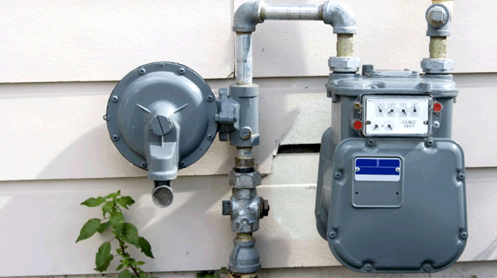
BY BRADEN CARTWRIGHT
Daily Post Staff Writer
Palo Alto City Council candidates are divided on how far the city should go to remove natural gas appliances from the home in an effort to stop climate change.
Some candidates want the city to set a date for removing natural gas lines, while others want to let the market decide what appliances people have in their homes.
Any local policies would have to work around a ruling from the U.S. Court of Appeals in April 2023 that found Berkeley’s ban on natural gas appliances in new buildings was illegal under federal energy rules.
The ruling caused Palo Alto to stop enforcing its own ban, instead creating lighter restrictions and incentives for property owners to make the switch.
“I don’t see ending natural gas as any type of realistic possibility in the near or long term future,” said Mayor Greer Stone, one of nine candidates running for four seats. Two candidates — George Lu and Katie Causey — said they want the city to set a date when natural gas would no longer be allowed.
The shutoff date would be later than 2030 but some time in the next couple decades, Lu said.
“We need to do some more planning, specifically for Palo Alto, to land on that date,” Lu said.
Currently, the city is offering rebates to customers who replace their natural gas heaters with an electric heat pump.
Lu said he is anticipating the number of households using natural gas to eventually fall to 2-5%.
“Then there’s a really difficult decision of like, do we actually subsidize all this natural gas infrastructure?” Lu said. “At that point, the city would certainly have to make a hard decision.”
Causey said she would advocate for a shutoff date in 2040 to give people time to know it’s happening.
“In theory, our grid should be ready by 2030, so we could be ready for that transition by 2032, so it could always happen before 2040,” she said.
Alternatives need to be proven
Councilman Pat Burt said residents will be more willing to make the switch after their friends, family and neighbors have gone electric.
“I don’t think the populace is ready to accept that until they have been show that the alternative is really feasible for them,” Burt said in an interview.
Burt said he doesn’t want to set an end date for natural gas without a funding plan and an outreach plan.
“I don’t like to have backlashes because we go too far too fast,” he said.
Burt went to the Paris Climate Accords in December 2015 when he was mayor, and he asked other mayors how to retire a natural gas utility. Nobody had an answer, so Palo Alto faces a learning curve, he said.
It’s critical that the city upgrade its transformers and power lines to reduce the number of outages, Burt said.
“You can’t switch people to electric unless they’ve got really reliable electric,” Burt said.
Parks Commissioner Anne Cribbs said she thinks about her 25-year-old grandson, who is very concerned about climate change.
“That’s what he thinks about. That’s what wakes him up at night, and that’s how he is making decisions for his family, Cribbs said.
But Cribbs said she doesn’t know how low-income residents would make the switch.
“I’m hopeful that we can move to electrification, but I’m not ready to say that we should turn off the gas lines. I know that’s ambiguous,” Cribbs said.
Planning Commissioner Keith Reckdahl said he just converted to an electric water heater, and he’s paying less because it’s more efficient.
A decision for the market
However, some technology is still developing. Reckdahl has a gas furnace to heat his Eichler, and finding an electric replacement is “really hard and really expensive,” he said.
“If there were affordable options, then I’d feel better about cutting off the gas. But I think the best way to do it is to let the market decide … As people go through and they realize they can save money, they probably on their own will transition,” Reckdahl said in an interview.
Planning Commissioner Cari Templeton said she’s concerned about the health impacts of natural gas in the home and potential explosions of underground lines.
But she said the Berkeley ruling means that natural gas won’t be ended any time soon.
“People don’t walk away from things they know quite as quickly as maybe some people hope,” Templeton said.
Educating the public
Senior advocate Henry Etzkowitz wants to make solar panels easier to build on rooftops of shopping centers and apartment complexes.
“I would want to incentivize and educate all consumers to move away from natural gas. I don’t like harsh measures,” he said.
Planning Commissioner Doria Summa said she’s concerned about some of the “extreme” rhetoric from candidates about ripping out natural gas lines. It’s going to be too expensive for some residents to make the switch, she said.
“It’ll be gradual, and I don’t know if it will ever be complete,” Summa said.

Maybe those candidates who want to unplug natural gas lines should start paying attention to today’s news about all the counties on the Bay Area and throughout the state whose electric power will be shut off due to gusty winds and excess demand due to too many people using a;ready scarce resources.
Obviously they’ve also missed the other ROUTINE news urging people to not charge their e-vehicles during peak time but to do so during the work day instead of overnight when they get home and the local CPAU news about power outages due to balloons, fallen branches, etc etc.
Just maybe they should stop the reflexive virtue signalling and start doing their homework on the issues and pay attention to reality.